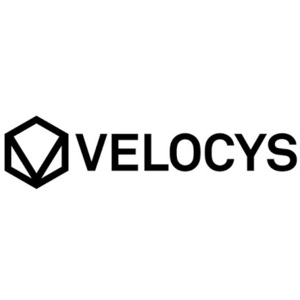Velocys provides update on US, UK biorefinery projects

May 18, 2021
BY Erin Voegele
Velocys provided an update on its proposed commercial-scale U.K. and U.S. biorefinery projects in its 2020 financial report, released on May 17. The company also discussed an agreement that could allow its technology to be deployed in Japan.
U.K.-based Velocys has designed, developed and now licenses proprietary Fischer-Tropsch technology for the for the generation of clean, low-carbon, synthetic drop-in aviation and transportation fuels from municipal solid waste (MSW) and woody biomass. The company was originally a spin-out from Oxford University, and in 2008 acquired a U.S. company with a complementary reactor technology developed at the Pacific Northwest National Laboratory.
Velocys is currently developing two reference plants; the Altalto waste-to-jet fuel project in Immingham, U.K., and the Bayou Fuels Mississippi Biorefinery Project in Natchez, Mississippi. The Altalto project is expected to generate 20 MMgy of sustainable jet fuel (SAF) and naphtha from MSW feedstock, with financial close currently targeted for 2022. The Bayou Fuels facility is expected to produce 25 MMgy of renewable fuels from woody biomass waste. Financial close for that project is targeted for the first quarter of 2022. Velcoys is pursuing a federal loan guarantee to support the project.
Advertisement
According to Velocys, the planning application for the Altalto facility was improved in May 2020. In mid-2020, Velocys raised £21.0 million, and further contributions from both British Airways and Shell towards the technical development of the project. In 2021, an option agreement with British Airways for the project was extended through March 2022. Shell, however, withdrew from the agreement in January 2021.
Regarding the proposed Bayou Fuels facility, Velocys indicated that discussions are ongoing to secure investment by one or more strategic partners. The company also noted the project underwent design review and optimization during the second half of last year.
Moving forward, Velocys said that post-planning consent and the final phase of technical pre-development work for the Altalto facility is expected to be complete during the second quarter of this year. The company also said it is taking advantage of the learnings it has gained working with its engineering partner, Worley, and accelerating the technical development of the Mississippi facility. “This will make both projects highly standardized and modular, ready for the final FEED work and future projects,” the company said in the report.
A project based on Velocys’ technology may also be developed in Japan. The company in February 2021 announced an agreement with Toyo Engineering Corp. to start the development of their commercial projects to produce SAF and other renewable fuels in Japan. The agreement follows a demonstration project completed in 2020.
Advertisement
Velocys also reported that in 2020 it successfully manufactured four FT reactors and catalyst and delivered those products to its client Red Rock Biofuels for its Lakeview, Oregon, plant. In 2021, the company plans to work with Red Rock to asset with the startup and commissioning of its facility.
A full copy of the 2020 financial report can be downloaded from the Velocys website.
Related Stories
The U.S. EPA on May 14 delivered two RFS rulemakings to the White House OMB, beginning the interagency review process. One rule focuses on RFS RVOs and the other focuses on a partial waiver of the 2024 cellulosic RVO.
The U.S. EPA on May 15 released data showing nearly 1.79 billion RINs were generated under the RFS in April, down from 2.09 million generated during the same month of last year. Total RIN generation for the first four months of 2025 was 7.12 billion.
Calumet Inc. on May 9 announced sustainable aviation fuel (SAF) capacity at its Montana Renewables biorefinery is expected to reach 120 MMgy to 150 MMgy sooner than previously reported for a fraction of the originally expected cost.
Tidewater Renewables on May 8 announced that its 3,000-barrel-per-day renewable diesel plant in Prince George, British Columbia, operated at 75% capacity during the first quarter, up from 71% during the same period of last year.
Aemetis Inc. released Q1 results on May 8, reporting increased biogas production, progress with efficiency improvements at the Keyes ethanol plant, and resumed biodiesel deliveries. Financing activities are also underway for a proposed SAF project.
Upcoming Events










